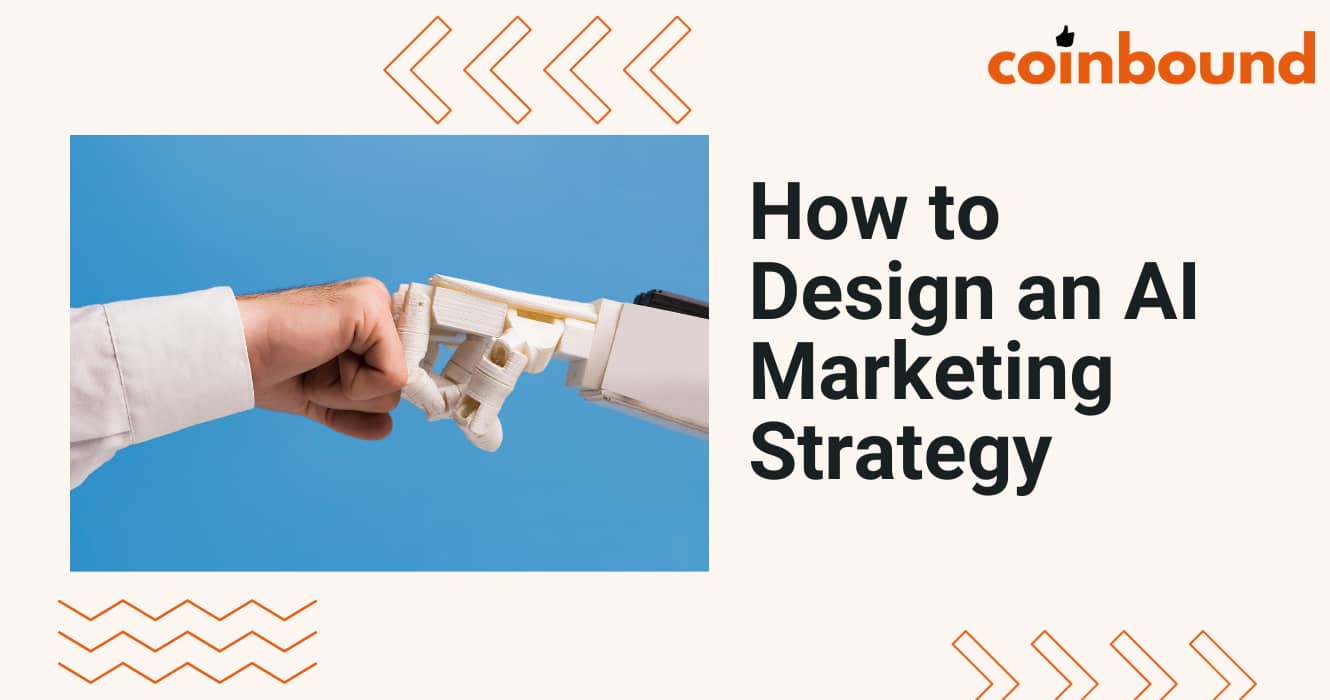In today’s digital age, businesses are constantly looking for innovative ways to stay ahead of the competition. One such way is by leveraging the power of artificial intelligence (AI) in their marketing strategies. AI has the ability to analyze vast amounts of data and provide valuable insights that can help businesses make informed decisions. In this article, we will explore how to design an AI marketing strategy that can drive success for your business.
The Importance of AI in Marketing
Artificial Intelligence has become a game-changer in the marketing world. It has the potential to revolutionize the way businesses approach their marketing strategies. With AI, businesses can automate repetitive tasks, analyze large amounts of data quickly, and provide personalized experiences to their customers. This can lead to increased efficiency, improved customer satisfaction, and ultimately, higher profits.
The Role of AI in Digital Marketing
In the realm of digital marketing, AI can play a significant role. It can help businesses understand their customers better by analyzing their online behavior and preferences. This can enable businesses to create more targeted and effective marketing campaigns. Furthermore, AI can also help businesses predict future trends and consumer behavior, allowing them to stay ahead of the competition.
Understanding AI Marketing Strategy
Before diving into the details, it is important to understand what an AI marketing strategy entails. An AI marketing strategy is a plan that utilizes AI technologies to enhance marketing efforts. It involves using AI algorithms and tools to analyze customer data, predict consumer behavior, automate marketing campaigns, and personalize customer experiences.
The Components of an AI Marketing Strategy
An AI marketing strategy consists of several components. First, it involves the use of AI technologies such as machine learning, natural language processing, and predictive analytics. These technologies can help businesses analyze customer data, predict future behavior, and automate marketing tasks. Second, an AI marketing strategy also involves the collection and analysis of large amounts of data. This data can provide valuable insights that can help businesses make informed decisions.
The Benefits of an AI Marketing Strategy
Implementing an AI marketing strategy can provide numerous benefits for businesses. For one, it can help businesses gain a deeper understanding of their customers. By analyzing customer data, businesses can identify patterns and trends that can help them predict future behavior. This can enable them to create more targeted and effective marketing campaigns. Additionally, an AI marketing strategy can also help businesses automate repetitive tasks, freeing up time for more strategic initiatives.
Step 1: Define Your Marketing Goals
The first step in designing an AI marketing strategy is to clearly define your marketing goals. What do you want to achieve with your marketing efforts? Are you looking to increase brand awareness, generate leads, or improve customer retention? Defining your goals will help you determine which AI technologies and tools are best suited for your needs.
Understanding Your Marketing Goals
Before you can start designing your AI marketing strategy, you need to have a clear understanding of your marketing goals. Are you looking to increase brand awareness? Do you want to generate more leads? Or are you aiming to improve customer retention? By understanding your goals, you can determine which AI technologies and tools are best suited for your needs.
Aligning Your Marketing Goals with Your Business Objectives
It’s also important to align your marketing goals with your overall business objectives. For instance, if your business objective is to increase sales, then your marketing goal might be to generate more leads. By aligning your marketing goals with your business objectives, you can ensure that your AI marketing strategy supports your overall business strategy.
Step 2: Collect and Analyze Data
AI relies heavily on data, so the next step is to collect and analyze relevant data. This includes customer demographics, purchase history, website interactions, social media engagement, and more. The more data you have, the more accurate and insightful your AI algorithms will be. There are various tools available that can help you collect and analyze data, such as customer relationship management (CRM) systems, social media listening tools, and web analytics platforms.

The Importance of Data in AI Marketing
Data is the lifeblood of AI marketing. Without data, AI algorithms would not be able to function. The more data you have, the more accurate and insightful your AI algorithms will be. Therefore, it’s crucial to collect and analyze as much relevant data as possible. This includes customer demographics, purchase history, website interactions, social media engagement, and more.
Tools for Collecting and Analyzing Data
There are various tools available that can help you collect and analyze data. For instance, customer relationship management (CRM) systems can help you collect and manage customer data. Social media listening tools can help you monitor social media engagement. And web analytics platforms can help you track website interactions. By using these tools, you can gather a wealth of data that can be used to inform your AI marketing strategy.
Step 3: Choose the Right AI Technologies
Once you have collected and analyzed your data, it’s time to choose the right AI technologies for your marketing strategy. There are several AI technologies that can be used in marketing, including machine learning, natural language processing, chatbots, and predictive analytics. Each technology has its own strengths and can be used to achieve different marketing objectives. For example, machine learning can be used to analyze customer data and predict future behavior, while chatbots can be used to provide personalized customer support.

Understanding Different AI Technologies
There are several AI technologies that can be used in marketing. These include machine learning, natural language processing, chatbots, and predictive analytics. Each technology has its own strengths and can be used to achieve different marketing objectives. For instance, machine learning can be used to analyze customer data and predict future behavior. Natural language processing can be used to understand and generate human language, making it useful for tasks such as content creation and customer service. Chatbots can be used to automate customer service, while predictive analytics can be used to predict future trends and consumer behavior.
Choosing the Right AI Technologies for Your Marketing Goals
Once you have a clear understanding of the different AI technologies, you can choose the ones that are best suited for your marketing goals. For instance, if your goal is to improve customer service, you might choose to use chatbots. If your goal is to predict future trends, you might choose to use predictive analytics. By choosing the right AI technologies, you can ensure that your AI marketing strategy is effective and efficient.
Step 4: Implement AI into Your Marketing Campaigns
Now that you have chosen the right AI technologies, it’s time to implement them into your marketing campaigns. This can involve automating certain marketing tasks, such as email marketing or social media posting, using AI algorithms. It can also involve personalizing customer experiences by delivering targeted content and recommendations based on their preferences and behavior. By implementing AI into your marketing campaigns, you can save time, improve efficiency, and deliver more relevant and personalized experiences to your customers.
Automating Marketing Tasks with AI
One of the main benefits of AI is its ability to automate repetitive tasks. In the context of marketing, this can involve tasks such as email marketing or social media posting. By automating these tasks, you can save time and improve efficiency. Furthermore, AI algorithms can also help you optimize your marketing campaigns by analyzing data and making recommendations.
Personalizing Customer Experiences with AI
Another benefit of AI is its ability to personalize customer experiences. By analyzing customer data, AI algorithms can deliver targeted content and recommendations based on their preferences and behavior. This can lead to more relevant and personalized experiences for your customers, which can in turn lead to higher customer satisfaction and loyalty.
Step 5: Monitor and Optimize Your AI Marketing Strategy
Once your AI marketing strategy is up and running, it’s important to continuously monitor and optimize its performance. AI algorithms are not perfect and may require fine-tuning to achieve the desired results. Monitor key metrics such as conversion rates, click-through rates, and customer satisfaction to gauge the effectiveness of your AI marketing strategy. Use the insights gained from AI analytics to make data-driven decisions and optimize your marketing campaigns accordingly.
Monitoring Your AI Marketing Strategy
Once your AI marketing strategy is in place, it’s important to continuously monitor its performance. This involves tracking key metrics such as conversion rates, click-through rates, and customer satisfaction. By monitoring these metrics, you can gauge the effectiveness of your AI marketing strategy and identify areas for improvement.

Optimizing Your AI Marketing Strategy
In addition to monitoring your AI marketing strategy, it’s also important to continuously optimize it. AI algorithms are not perfect and may require fine-tuning to achieve the desired results. By using the insights gained from AI analytics, you can make data-driven decisions and optimize your marketing campaigns accordingly. This can involve adjusting your AI algorithms, tweaking your marketing campaigns, or even changing your marketing goals.
Benefits of an AI Marketing Strategy
Designing an AI marketing strategy can provide several benefits for your business. Firstly, AI can help you gain valuable marketing insights by analyzing large amounts of data. This can help you understand your customers better and make informed decisions. Secondly, AI can automate repetitive marketing tasks, freeing up time for your marketing team to focus on more strategic initiatives. Thirdly, AI can personalize customer experiences by delivering targeted content and recommendations, leading to higher customer satisfaction and loyalty. Lastly, AI can help you stay ahead of the competition by identifying trends and predicting consumer behavior.
Gaining Valuable Marketing Insights with AI
One of the main benefits of an AI marketing strategy is its ability to provide valuable marketing insights. By analyzing large amounts of data, AI can help you understand your customers better. This can enable you to make informed decisions and create more effective marketing campaigns. Furthermore, AI can also help you identify trends and predict consumer behavior, allowing you to stay ahead of the competition.
Automating Marketing Tasks with AI
Another benefit of an AI marketing strategy is its ability to automate repetitive marketing tasks. This can free up time for your marketing team to focus on more strategic initiatives. For instance, AI can automate tasks such as email marketing or social media posting, allowing your team to focus on other areas such as content creation or strategy development.
Personalizing Customer Experiences with AI
AI can also help you personalize customer experiences. By analyzing customer data, AI can deliver targeted content and recommendations based on their preferences and behavior. This can lead to more relevant and personalized experiences for your customers, which can in turn lead to higher customer satisfaction and loyalty.
Staying Ahead of the Competition with AI
Lastly, an AI marketing strategy can help you stay ahead of the competition. By identifying trends and predicting consumer behavior, AI can enable you to anticipate market changes and adjust your marketing strategy accordingly. This can give you a competitive edge and help you stay ahead in the ever-evolving digital marketing landscape.
Conclusion
In conclusion, designing an AI marketing strategy can be a game-changer for your business. By leveraging the power of AI, you can gain valuable insights, automate marketing tasks, personalize customer experiences, and stay ahead of the competition. Remember to define your marketing goals, collect and analyze data, choose the right AI technologies, implement them into your marketing campaigns, and continuously monitor and optimize your strategy. With the right approach, an AI marketing strategy can drive success and growth for your business.
The Power of AI in Marketing
AI has the potential to revolutionize the way businesses approach their marketing strategies. By leveraging the power of AI, businesses can gain valuable insights, automate repetitive tasks, personalize customer experiences, and stay ahead of the competition. With the right approach, an AI marketing strategy can drive success and growth for your business.
The Future of AI in Marketing
The future of AI in marketing looks promising. As AI technologies continue to evolve and improve, they will likely play an increasingly important role in marketing. Businesses that are able to effectively leverage the power of AI will likely have a competitive edge in the future. Therefore, it’s crucial for businesses to stay updated on the latest AI technologies and trends, and to continuously optimize their AI marketing strategies.
Final Thoughts
In conclusion, AI has the potential to revolutionize the way businesses approach their marketing strategies. By leveraging the power of AI, businesses can gain valuable insights, automate repetitive tasks, personalize customer experiences, and stay ahead of the competition. With the right approach, an AI marketing strategy can drive success and growth for your business. Therefore, it’s crucial for businesses to understand the power of AI in marketing and to continuously optimize their AI marketing strategies.








